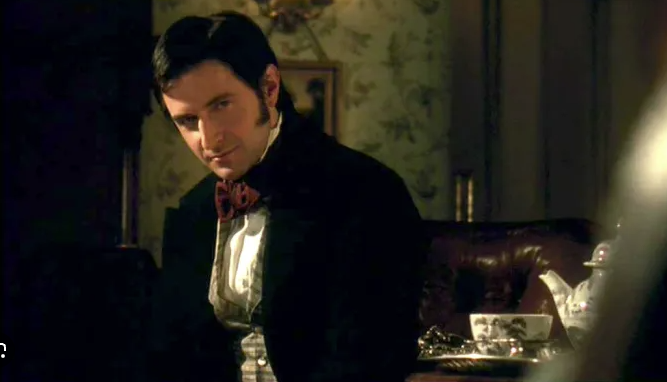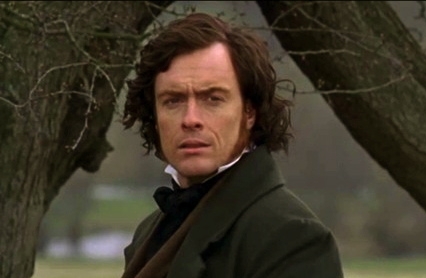I got to guest on a podcast! Thanks to the Bonnets at Dawn podcasters, I was honored to speak about my North and South passion with Lauren Burke, who is the Team Bronte host. Bonnets at Dawn are active on Facebook and Twitter as well, and they’ve only recently discovered the magic of Gaskell’s story.
I loved chatting with Lauren, and nearly forgot our conversation was being recorded for a podcast! We talked about how I found North and South and what my favorite characters are, among other things.
I was truly surprised that Lauren was interested in talking about Fanny since I’ve never been that intrigued by her. Fanny Thornton always appeared to me as one of Gaskell’s most shallow characters. I see Gaskell using her as a comparison figure - to her hardworking brother, to the socially compassionate Margaret, and to her austere and tough-as-nails mother. Fanny is also, like Edith, a symbol of the self-consumed behavior of those in a position of wealth and leisure.
I’ve followed conversations about Fanny on C19 years ago. The debate on Fanny seems to always come down to nature or nurture: is Fanny the way she is by nature or did her upbringing mold her into the person she is? Was she coddled too much in those early years? Or was she always going to turn out to be self-centered and rather weak-minded?
Here’s what her own mother thinks of her daughter:
“Mrs. Thornton…had an unconscious contempt for a weak character; and Fanny was weak in the very points which her mother and brother were strong….she felt instinctively that nothing could strengthen Fanny to endure hardships patiently, or face difficulties bravely; and though she winced as she made this acknowledgement to herself about her daughter, it only gave her a kind of pitying tenderness of manner towards her; much of the same description of demeanor with which mothers are wont to treat their weak and sickly children.”
I have to wonder if Gaskell uses Hannah Thornton’s assessment of Fanny as a true observation, or if the reader is meant to realize that Hannah has standards that most people will never meet.
Certainly, part of Hannah’s passionate love for her son is that he lives up to all her expectations. Fanny doesn’t. She’ll never be as good as John. Even Hannah feels uncomfortable knowing that she doesn’t love her equally, which is why she makes an effort to call Fanny endearing names — to make up for the lack of adoration she can’t help but pour on John.
So yes, I feel compassion for Fanny. She’s had to live under her brother’s shadow all her life. Her mother never loved her as much. Can she feel that? Does she resent it?
What I don’t really have much compassion about is how Fanny somehow learns to only care about herself. Was it the treatment of being protected and pampered as a child? Did she never see how hard her brother and mother worked and sacrificed to provide for her? Is she ever grateful?
Fanny is phenomenal as comic relief in the film! Joy Joyner was hilarious in the part.
What makes Fanny a character I can’t warm to is that I can’t find any clues in the book that she really loves anyone. From the mini-series, the way she turns on her brother at his lowest point is especially cruel— even digging in a comment about his chances of marriage to sink him lower.
And I understand that she’s suffered her whole life with her mum and brother dismissing her. Still, it’s hard for me to give her the benefit of the doubt when she fails to show any interest in what her brother and mother have done for her.
Maybe I’m being too harsh in judging her. After all, Fanny’s still just a teenager. It’s not at all uncommon for wealthier teenagers to be wrapped up in their own world — scarcely cognizant of all the things their parents do to make their lives easy. Maybe Fanny will mature some day, and become more engaged with the world in something purposeful. (There is a fan fiction story about Fanny’s life available by request at C19.)
As Lauren mentions in the podcast, she was more interested in studying Fanny as a nouveau riche character in the Industrial Era. Was Fanny more typical of this up-and-coming class?
Maybe Fanny is more fascinating than I thought! What are your thoughts on Fanny Thornton?























